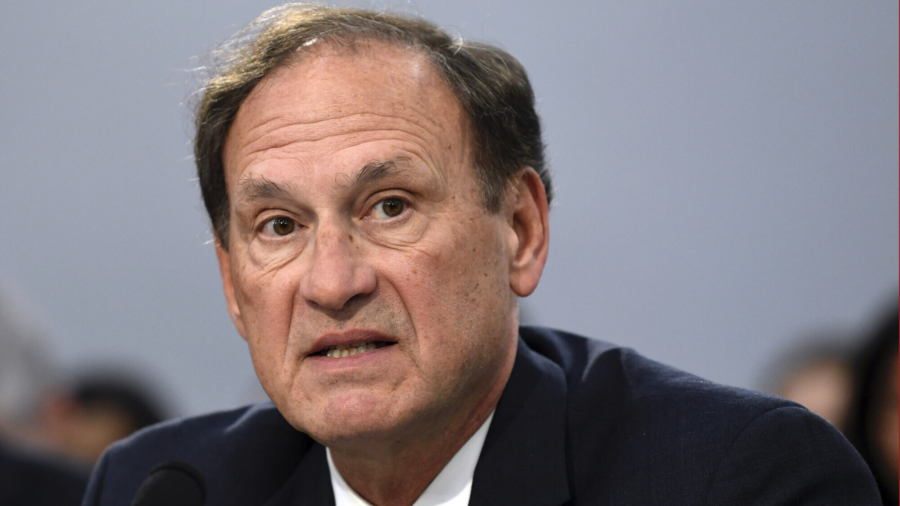Free speech and religious liberty—considered hallmarks of the American way of life—are under attack, while tolerance of opposing views is in fast decline across the United States, said Supreme Court Associate Justice Samuel Alito in an address to the Federalist Society.
“Tolerance for opposing views is now in short supply,” Alito said to the conservative group, citing discourse in law schools as well as in the “broader academic community.” New law school graduates have repeatedly told him “that they face harassment and retaliation if they say anything that departs from the law school orthodoxy,” Alito elaborated.
He defended the Federalist Society, noting that Supreme Court Associate Justice Elena Kagan, considered a member of the liberal wing of the Supreme Court, defended the group and their values. He praised her in saying that her remarks are “a true expression of the freedom of speech that our constitution guarantees and that we need to preserve.”
“We should all welcome rational, civil speech on important subjects, even if we do not agree with what the speaker has to say,” he said. “Unfortunately, tolerance for opposing views is now in short supply in many law schools and in the broader academic community. When I speak with recent law school graduates, what I hear over and over is that they face harassment and retaliation if they say anything that departs from the law school orthodoxy.”
At one point, the justice referenced comedian George Carlin’s “seven dirty words” schtick in the early 1970s, saying: “Today, you can see shows on your TV screen in which the dialogue appears at time to consist almost entirely of those words.”
“Carlin’s list seems like a quaint relic. But it would be easy to put together a new list called: Things You Can’t Say if You’re a Student or a Professor at a College or University, or an Employee of Many Big Corporations. And there wouldn’t just be seven items on that list. Seventy times seven would be closer to the mark,” he said.
Alito also touched on the erosion of religious liberty across the country.
“For many today, religious liberty is not a cherished freedom,” Alito said. “It’s often just an excuse for bigotry and it can’t be tolerated even when there’s no evidence that anybody has been harmed.”
The justice cited Supreme Court cases like Little Sisters of the Poor, which is an order of Roman Catholic nuns who were exempted from a requirement to give birth control to employees, or the Colorado baker who refused to provide a service to a gay couple.
“The question we face is whether our society will be inclusive enough to tolerate people with unpopular religious beliefs,” he said, noting that Christians should have the same protections as other religious groups.
“You can’t say that marriage is a union between one man and one woman,” Alito said, referring to the traditional belief that was held throughout the vast majority of societies and civilizations since antiquity. “Until very recently that’s what the vast majority of Americans thought. Now it’s considered bigotry.”
From The Epoch Times


